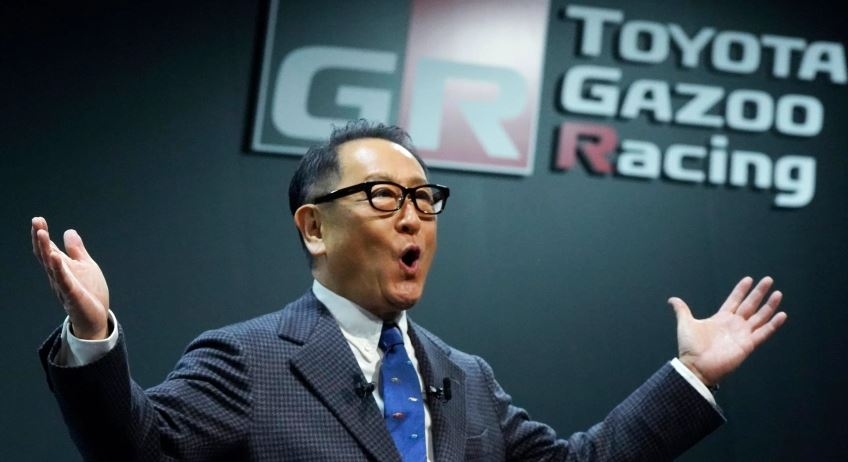As the firm struggles to respond to the increasing global demand for electric vehicles, Akio Toyoda, the grandson of Toyota’s founder, will be replaced by a younger successor.
Mr. Toyoda, a vociferous critic of worldwide attempts to transition to battery-powered electric automobiles, will step down as CEO and become the company’s chairman on April 1st, Toyota announced on Thursday. Koji Sato, a senior executive of Toyota’s premium business Lexus, will follow him.
Over more than 13 years, Mr. Toyoda, grandson of the company’s founder, helped Toyota preserve its place as one of the world’s largest and most significant manufacturers despite external and internal problems. However, his hesitation to embrace the auto industry’s shift toward electrification has earned him harsh criticism and generated fears among some shareholders that the business, which once led the world in the production of environmentally friendly automobiles, may fall behind.
Mr. Toyoda, 66, explained why he was passing the torch by stating, “I am only a vehicle manufacturer, and I regard that as my limit.” He stated that Mr. Sato “has a purpose to develop Toyota into a mobility firm.” “I anticipate this new team to surpass the limitations I cannot surpass.”
Mr. Sato and Mr. Toyoda were shown putting an all-electric Lexus through its paces in an introduction film. Lexus announced in 2021 that by 2030, all of the premium brand’s sales in the United States, Europe, and China will be battery-powered vehicles.
During his tenure as president, Mr. Toyoda led the firm through several obstacles that challenged its standing as one of the world’s leading manufacturers. When he took over in 2009, the global financial crisis had pushed the corporation into the red for the first time since 1950, clouding its prospects. And he was immediately presented with a global recall for jammed accelerator pedals, which ultimately compelled him to testify before a House committee probing the company’s activities.
The firm grew stronger as a result of its reaction to these issues. The lessons learned from disruptions to Toyota’s notoriously tight supply chains after Japan’s 2011 earthquake and tsunami helped prepare the company for the coronavirus pandemic, putting it in a better position than its competitors to meet the soaring demand for automobiles over the past few years and earning it the title of world’s best-selling automaker.
Since 1937, when Toyota was broken out from an automated loom maker founded by Sakichi Toyoda, the Toyoda family has played a key role in the company’s administration. Akio Toyoda’s grandfather and father also managed the firm, and he worked his way up through the corporation’s ranks for decades in preparation for his position as CEO.
Although his family name facilitated his ascent to the top, there was no assurance that he would succeed. In preparation for his duty as the company’s “master driver,” a position in which he test-drove new models, he spent a decade preparing to race automobiles and enduring severe endurance testing.
Mr. Toyoda is credited with making Toyota a pioneer in energy-efficient automobiles, as seen by its best-selling Prius hybrid-electric vehicle, but he has been reluctant to adapt to the industry’s current shift toward complete electrification.
Mr. Toyoda was perplexed when Elon Musk’s electric vehicle startup had a larger market capitalization than his own company in 2017 when Toyota ended a collaboration with Tesla.
In an interview released by Toyota last month, Mr. Toyoda stated that conflict-hungry media had misinterpreted his views on battery vehicles.
Using an acronym for battery-electric vehicles, he stated, “I’ve never claimed BEVs are incorrect.” “B.E.V.s is a valuable choice. Nevertheless, they may not be the only alternative. That argument just didn’t get over.”
Toyota has struggled to catch up as its competitors lay stronger claims on the expanding electric vehicle market. The company’s first mass-produced all-electric vehicle, one of several planned variants, was recalled shortly after its debut last year. In addition, the corporation has had limited success in commercializing its large wager on hydrogen-powered passenger vehicles. Additionally, the firm has fought against tighter pollution standards and regulations mandating electric vehicles in global markets.
Mr. Toyoda cited the retirement of the current chairman, Takeshi Uchiyamada, as the impetus for his decision to relinquish control on Thursday. Mr. Sato was chosen because he is youthful, “loves vehicles,” and strived “to accept Toyota’s ideology, skills, and procedures,” he explained.
Mr. Sato, 53, has spent his entire career with Toyota or its subsidiaries, joining the business in 1992 after graduating from Waseda University in Tokyo. In 2016, he was appointed chief engineer of Lexus and climbed to become its president before being elevated to chief branding officer of Toyota.

